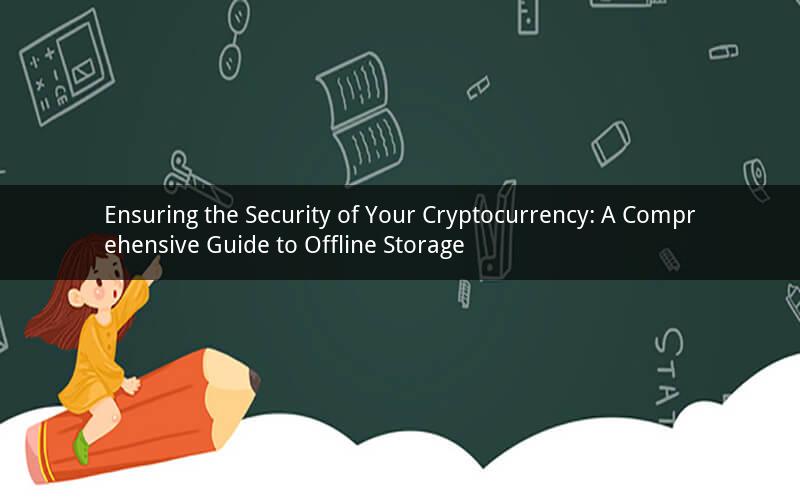
Introduction:
In an era where digital currencies are gaining popularity, the need to secure your cryptocurrency offline is of paramount importance. Offline storage, also known as cold storage, refers to keeping your cryptocurrency in a secure, offline environment to protect it from potential online threats. This article aims to provide you with a comprehensive guide on how to store your own cryptocurrency offline, ensuring the safety and security of your digital assets.
1. Understanding Cold Storage:
Cold storage is a method of storing cryptocurrencies offline, away from the internet. It involves using hardware wallets, paper wallets, and other offline storage solutions. The primary advantage of cold storage is that it reduces the risk of online hacks, phishing attacks, and other cyber threats.
2. Choosing the Right Cold Storage Solution:
When it comes to offline storage, there are several options available. Let's explore the most popular ones:
a. Hardware Wallets:
Hardware wallets are considered one of the most secure methods of storing cryptocurrencies offline. They are physical devices designed specifically for storing digital assets. Some well-known hardware wallets include Ledger Nano S, Trezor Model T, and KeepKey. These wallets use advanced security features like secure element chips, PIN codes, and two-factor authentication to protect your cryptocurrencies.
b. Paper Wallets:
Paper wallets are a simple and cost-effective way to store cryptocurrencies offline. They involve printing a private and public key pair on a piece of paper. However, paper wallets are susceptible to physical damage, loss, and theft. It is crucial to store them in a safe and secure location, away from moisture and light.
c. Multi-Sig Wallets:
Multi-signature wallets require multiple private keys to access the stored cryptocurrencies. This adds an extra layer of security, as the private keys are stored in different locations or with different individuals. Multi-sig wallets are commonly used in businesses and organizations for enhanced security.
3. Best Practices for Offline Storage:
To ensure the security of your cryptocurrency offline, follow these best practices:
a. Research and Choose a Reliable Storage Solution:
Before selecting a cold storage solution, research thoroughly and read reviews from trusted sources. Look for reputable brands with a strong track record in the industry.
b. Backup Your Keys:
Always create backups of your private keys and recovery phrases. Store them in multiple secure locations, such as different physical wallets, encrypted files, or secure cloud storage services.
c. Keep Your Storage Solution Secure:
Ensure that your hardware wallet or paper wallet is stored in a safe and secure location. Avoid leaving it in plain sight or storing it in easily accessible places.
d. Regularly Update Your Software:
Keep your hardware wallet's firmware up to date to ensure that you have the latest security features and patches.
4. Risks and Precautions:
While offline storage is a secure method, it is essential to be aware of potential risks and take appropriate precautions:
a. Physical Security:
Protect your storage solution from physical threats such as theft, fire, or natural disasters. Consider using a safe or a secure storage box.
b. Software Vulnerabilities:
Even offline storage solutions can be vulnerable to software vulnerabilities. Keep your device's operating system and security software updated.
c. Human Error:
Misplacing or losing your private keys or recovery phrases can result in permanent loss of your cryptocurrencies. Ensure that you have a secure and reliable method of storing and accessing these sensitive pieces of information.
5. Frequently Asked Questions (FAQs):
Q1: Can I store multiple cryptocurrencies in a single hardware wallet?
A1: Yes, most hardware wallets support multiple cryptocurrencies. However, it is essential to check the compatibility of the wallet with the specific cryptocurrencies you wish to store.
Q2: How long does it take to recover my cryptocurrencies from a paper wallet?
A2: The process of recovering cryptocurrencies from a paper wallet is relatively quick. However, it may vary depending on the wallet's design and the complexity of the private key recovery process.
Q3: Are paper wallets susceptible to fraud?
A3: Paper wallets can be susceptible to fraud if someone gains access to your private key. It is crucial to keep your paper wallet secure and never share it with anyone.
Q4: Can I use my smartphone to store my cryptocurrency offline?
A4: While smartphones can be used for certain offline storage solutions, such as mobile wallets, they are generally considered less secure compared to dedicated hardware wallets. It is recommended to use hardware wallets for offline storage.
Q5: How often should I update my hardware wallet's firmware?
A5: It is advisable to update your hardware wallet's firmware regularly, especially when new security patches and features are released. However, it is important to check the release notes and ensure that the update is safe and reliable.
Conclusion:
Storing your cryptocurrency offline is crucial for protecting your digital assets from online threats. By understanding the different cold storage solutions, following best practices, and being aware of potential risks, you can ensure the security of your cryptocurrencies. Always prioritize security and take the necessary precautions to safeguard your digital wealth.